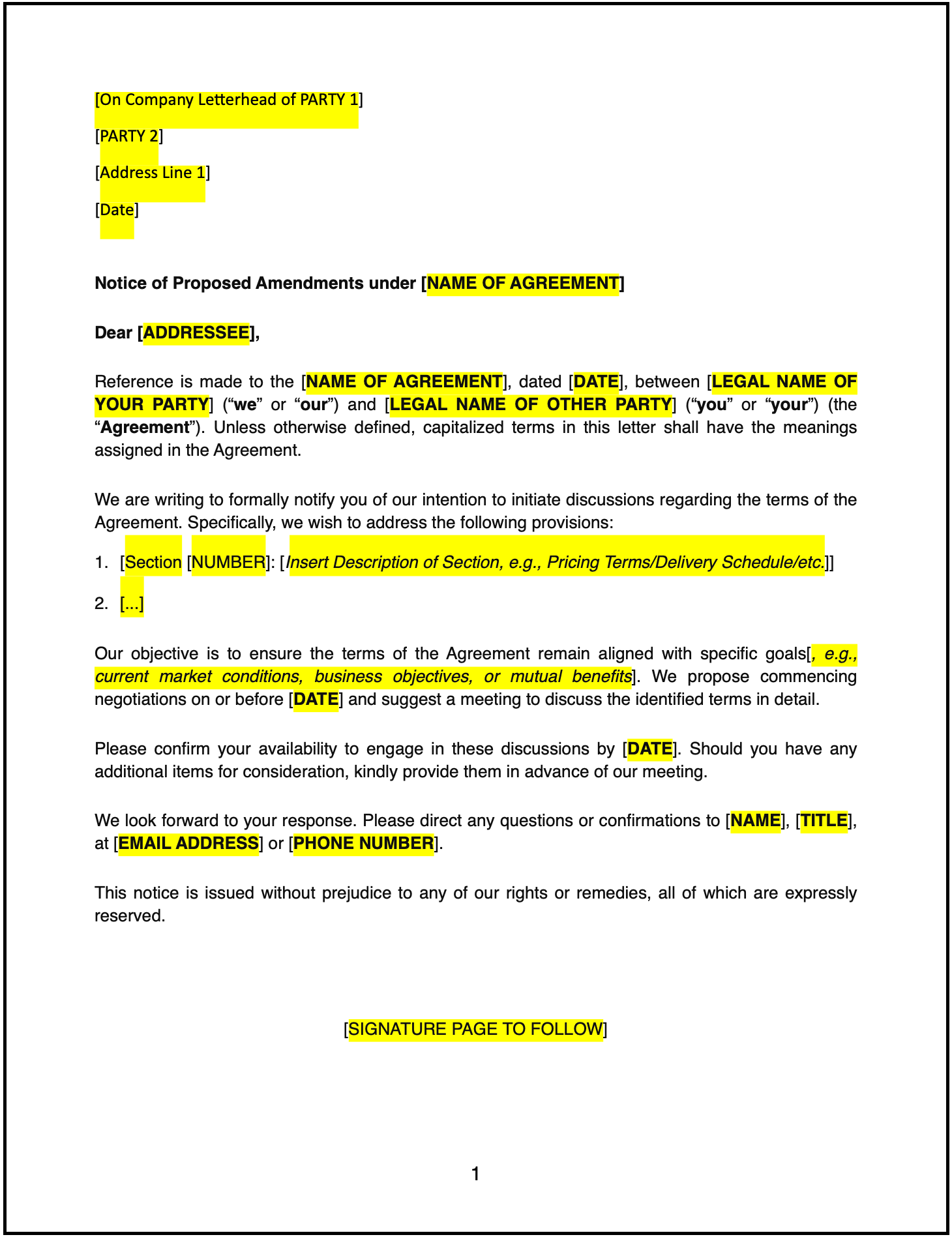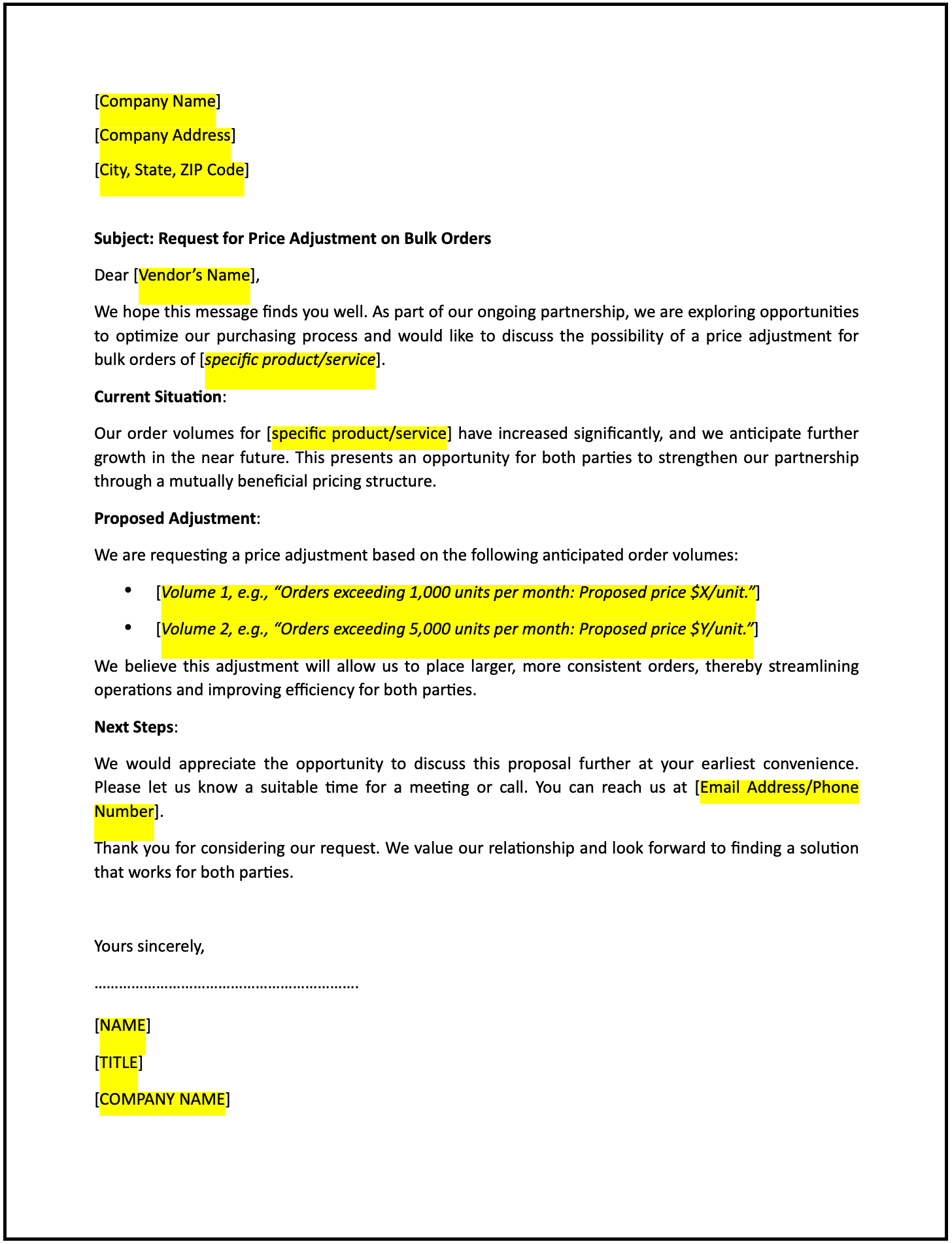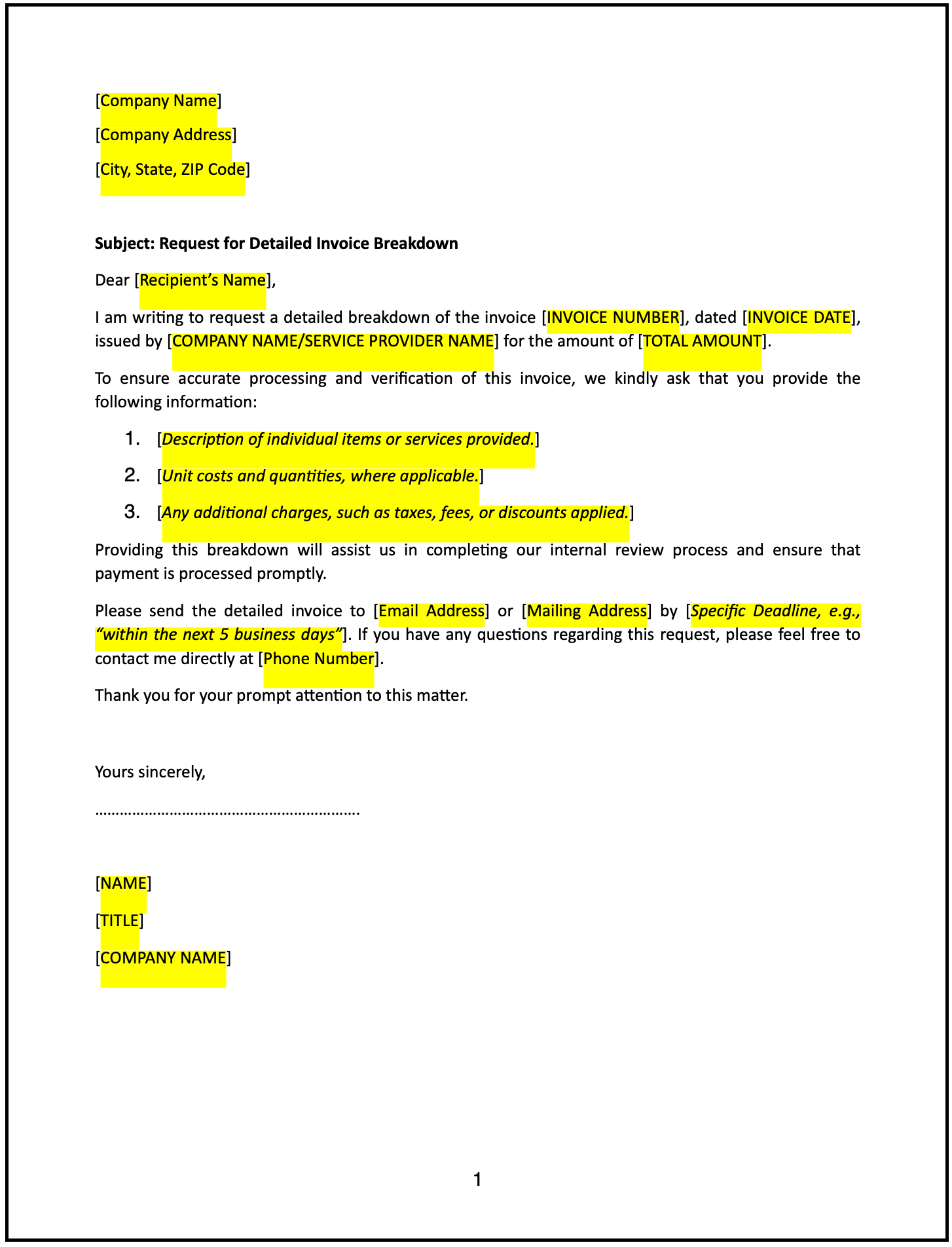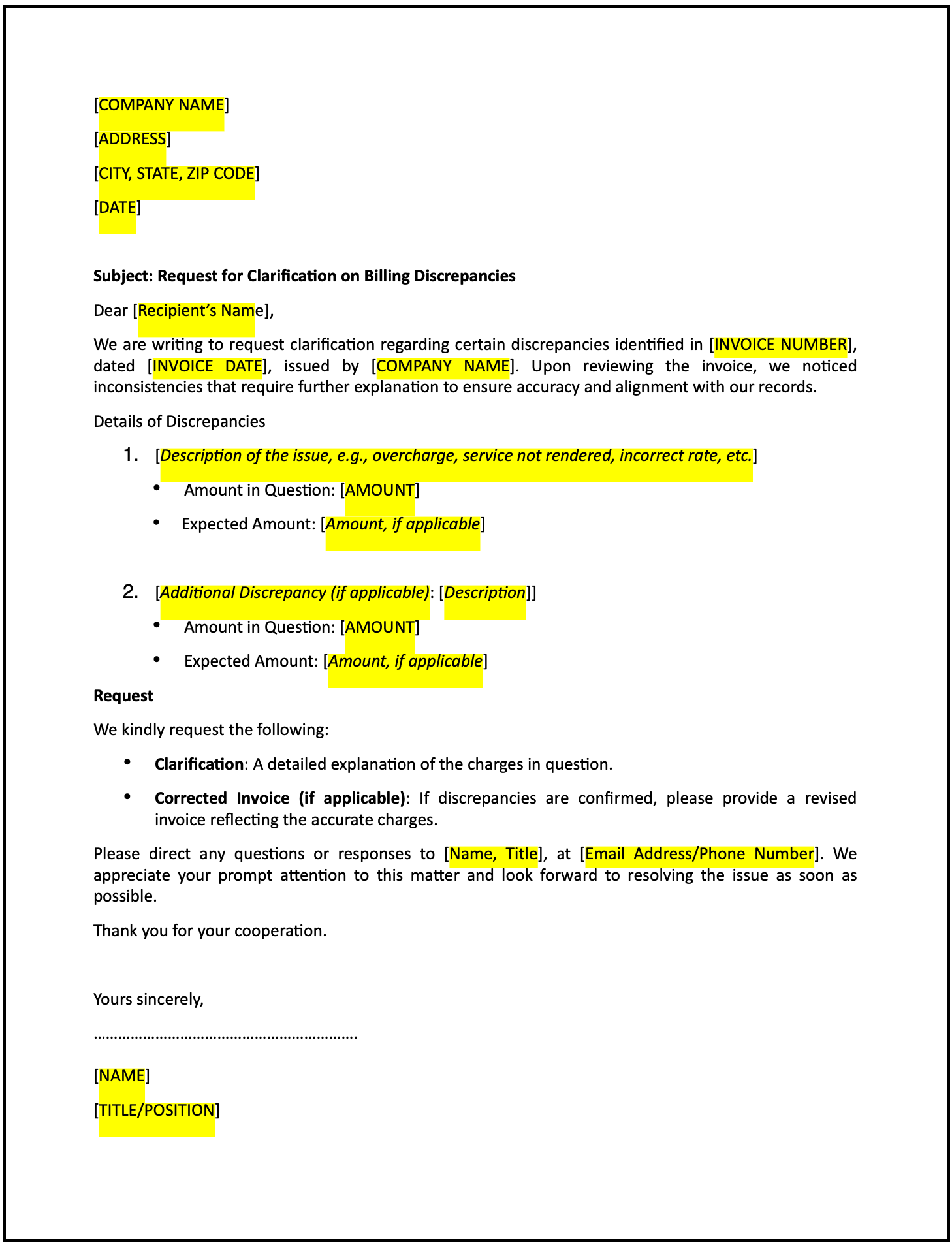Letter of intention to negotiate contract terms: Free template
Got contracts to review? While you're here for letters, let Cobrief make contract review effortless—start your free review now.

Customize this template for free
Letter of intention to negotiate contract terms
Initiating negotiations to adjust contract terms is a crucial step in ensuring the agreement aligns with both parties’ needs. This letter provides a professional way to express your intention to negotiate, outline the areas for discussion, and invite collaboration to reach a mutually beneficial agreement.
How to use this letter of intention to negotiate contract terms
- Reference the contract: Clearly identify the contract, including its title, reference number, and the parties involved. Provide the date of execution or reference key clauses for context.
- State your intention: Clearly express your desire to negotiate specific terms, ensuring the tone is collaborative and constructive.
- Identify the areas for discussion: Specify the clauses or terms you would like to revisit, and briefly outline the reasons for your request.
- Propose a timeline: Suggest a timeframe or meeting schedule for the negotiations to maintain momentum and structure.
- Maintain a professional tone: Keep the letter respectful and focused on finding solutions that benefit both parties.
- Invite collaboration: Encourage the other party to share their thoughts and participate actively in the negotiation process.
Benefits of using a letter of intention to negotiate contract terms
This letter template provides a professional and respectful way to initiate contract negotiations while maintaining transparency and collaboration. Here’s how it helps:
- Set a collaborative tone: Framing the letter as an invitation to discuss terms fosters trust and encourages open communication.
- Provide clarity: Clearly stating the terms for discussion ensures both parties are aligned on the negotiation’s focus.
- Demonstrate professionalism: A formal letter reflects respect for the other party and commitment to constructive engagement.
- Facilitate efficiency: Proposing a timeline for negotiations ensures the process is structured and avoids unnecessary delays.
- Strengthen relationships: Approaching negotiations professionally and respectfully reinforces positive working relationships.
Tips for writing an effective letter of intention to negotiate contract terms
- Be specific: Clearly reference the contract and identify the clauses or terms you wish to negotiate.
- Explain your reasons: Provide a brief, logical explanation for why the terms need to be revisited.
- Use professional language: Maintain a respectful and solution-oriented tone, emphasizing your commitment to collaboration.
- Address potential concerns: Anticipate questions or objections and include explanations to support your request.
- Keep it concise: Focus on the key areas for discussion and avoid unnecessary details or commentary.
Frequently asked questions (FAQs)

Requests a price adjustment for bulk orders, explaining the quantity being ordered and requesting a discount or better pricing terms.

Requests a detailed breakdown of an invoice, specifying the items or charges that need further clarification.

Requests clarification regarding billing discrepancies, specifying the discrepancies and asking for a detailed explanation.